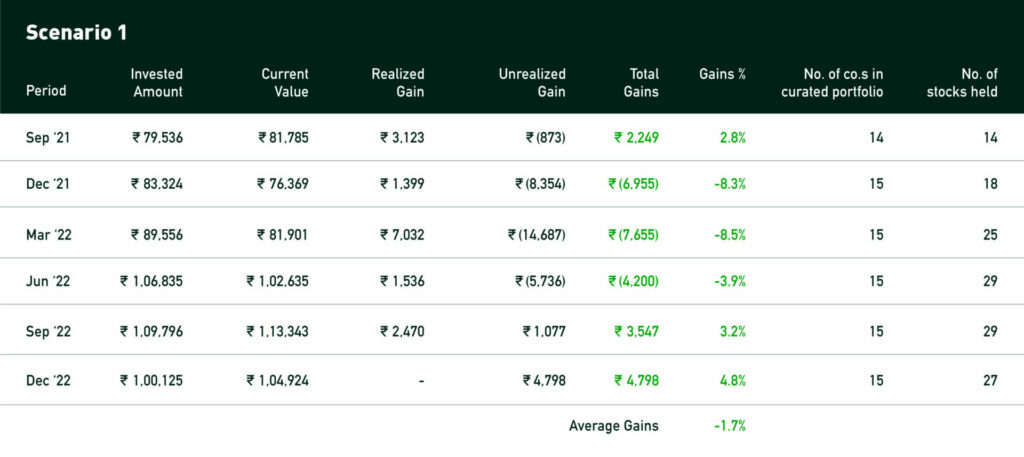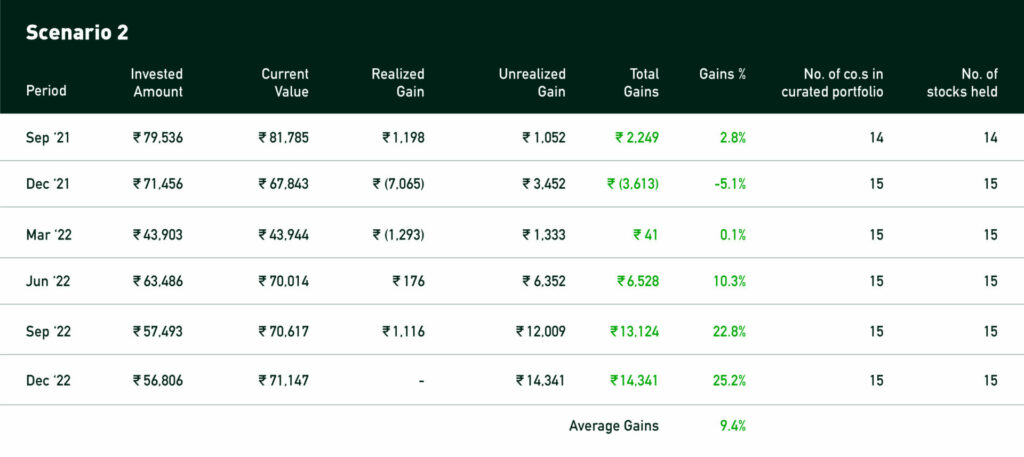Musings with Analyst: February 2023 | Disposition Effect

In an interview, a couple of years back, Nithin Kamath mentioned something mind-boggling,
‘In 2019, across all Zerodha accounts, the two most held stocks were – Tata Motors and Yes Bank. And, these two stocks were amongst the worst performers in 2019.’
Does that strike a chord with you? It’s called the Disposition Effect. The tendency to prematurely sell assets that have made gains for you, while holding onto the ones that have made you lose money, is known as the disposition effect. Perhaps, at the face of it, might not seem to be a very intuitive concept, but as and when we deconstruct this bias, we will begin to realize how ingrained it is in our psyche.
The disposition effect operates around the line of sunk cost fallacy, which is commonly used to denote a scenario wherein money, time, and effort are put in behind a losing investment. But, why does the disposition effect happen? Let us take a look –
Loss aversion
You see, we humans are extremely averse when it comes to realizing our losses. If you notice carefully, whenever any of our investments runs in losses, we stick around with that in the hope that at least it would come back to our buying price and then we can exit. In Tversky and Kahneman’s original study, they proposed a universal loss aversion ratio of 2.25 — that is, people value losses as 2.25 more than their equivalent gains. That tells you the story.
Risk aversion
We are risk averse with our gains, i.e. we cash out on our profitable investments early, in the anticipation of them falling in the future. This is a classic mistake, across all types of investors. This essentially clips the wings of your investments and doesn’t allow you to make more money on your winners.
Fear of regret & Desire for pride
‘What if I sell a losing stock and it goes up right after that?’ That in one sentence is fear of regret. Again, a natural tendency and difficult to resist. Desire for pride has more to do with booking the profits on the winning stock and feeling a sense of pride post that.
That’s as far as the theory behind the concept is concerned. Now let’s talk practical. For this purpose, we have decided to simulate the disposition effect on the Value & Momentum smallcase. Allow me to explain the simulation process.
Firstly, we start the simulation from Sep ‘21 up until Dec ‘22. Now, what we are doing is that we are comparing two scenarios of a Value & Momentum smallcase investor –
Scenario 1: At every rebalance, the investor is buying new stocks as suggested, but selling only those stocks that have yielded profits. In other words, she is carrying her losers and chooses to sell them off only when they come back in the green.
Scenario 2: The investor is rebalancing as it is, selling and buying stocks as per the model portfolio.


The deviation in results is there for you to see, isn’t it? There’s almost an alpha of ~10% between the two scenarios in the quest of holding on to your losers until they get back to green again. A few interesting observations from the tables attached above are –
- In Scenario 1, your realized gain is definitely more than Scenario 2, however, unrealized gains are also mounting with each passing period.
- Not a single instance of outperformance that one witnessed in Scenario 1 over Scenario 2.
- The investor portfolio in Scenario 1 is getting inflated with as many as 29 stocks which distorts the overall risk-reward.
“You will do yourself a large financial favour if you are able to see each of these gambles as a part of a bundle of small gambles and rehearse the mantra that will get you significantly closer to economic rationality: you win a few, you lose a few”
Disclaimer: Investment in securities market are subject to market risks. Read all the related documents carefully before investing. The content in these posts/articles is for informational and educational purposes only and should not be construed as professional financial advice and nor to be construed as an offer to buy /sell or the solicitation of an offer to buy / sell any security or financial products.
Users must make their own investment decisions based on their specific investment objective and financial position and using such independent advisors as they believe necessary.

Windmill Capital Team
Windmill Capital Private Limited is a SEBI registered research analyst (Regn. No. INH200007645) based in Bengaluru at No 51 Le Parc Richmonde, Richmond Road, Shanthala Nagar, Bangalore, Karnataka – 560025 creating Thematic & Quantamental curated stock/ETF portfolios. Data analysis is the heart and soul behind our portfolio construction & with 50+ offerings, we have something for everyone. For more information and disclosures, visit our disclosures page here –https://windmillcapital.smallcase.com/#disclosures




